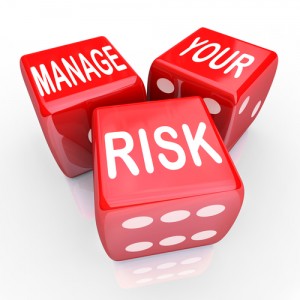Risk factors for prostate cancer
[/col]
[col type=”two-third last”]
Risk for prostate cancer varies from one man to another and depends on a variety of genetic and environmental factors.
Dr. Shteynshlyuger personally evaluates each patient to determine what risk factors you might have and to risk stratify you appropriately.
[/col]
[box style=”0″]
Dr. Alex Shteynshlyuger is a fellowship trained board certified urologist with expertise in evaluation and treatment of prostate cancer using modern effective and proven treatment methods. If you or someone you know has been diagnosed with prostate cancer, make an appointment to take advantage of Dr. Shteynshlyuger’s expert advice.
[/box]
A number of risk factors have been identified for prostate cancer (Table 3).
Table 3: Risk factors for prostate cancer
| Established Risk Factors | Uncertain Risk factors | No increased risk |
| Age >50 | STDs, Prostatitis | Vasectomy |
Family history
|
Obesity | Smoking |
| Race: African American > White >Middeteranian > Asians | Viral: XMRV retroviral infection of the prostate | Serum testosterone levels |
| Diet | ||
| Statins |
It is important to note that many suspected etiologic causes of prostate cancer have been investigated. It is well established that smoking and history of vasectomy are not significant risk factors for prostate cancer. Men with history of prostatitis and sexually transmitted diseases have been noted to have increased risk of prostate cancer diagnosis in some case-control and population studies but not in others. Whether this is a real phenomenon or a result of more intense screening or higher PSA values in these men that lead to biopsy and diagnosis is not known. However, a retrovirus, XMRV was recently found in disproportionately higher number of men with prostate cancer than in controls; it is also expressed more commonly in aggressive (Gleason >6) prostate cancers. While the mode of transmission is not known, XMRV is being actively investigated as a potential causative agent.
Obesity has been suggested as a risk factor – however most studies do not show an overall increase in risk for prostate cancer; some studies demonstrate higher risk of more aggressive (Gleason 7+) prostate cancer. All studies looking at association of obesity and prostate cancer suffer from significant methodological flaws.
Statins (HMG-CoA reductase inhibitors), widely used for treatment of hypercholesterolemia were implicated in lowering the risk of aggressive prostate cancer but the data is ambivalent; there is no effect of statins on overall risk of prostate cancer.29-30
No relationship between serum levels of testosterone or other androgens and the risk of prostate cancer has been observed.31 However the evidence from PCPT and REDEEM trials that alpha-reductase inhibitors decrease the risk of prostate cancer suggest that intra-prostatic androgen levels are important in prostate cancer etiology.
Age is the most important risk factor. Few men are diagnosed and fewer die of prostate cancer before age 40. Of all men who die from prostate cancer, 1% of deaths occur in the 45-54 age group; 7% in the 55-64 age group; 20% in 65-74 age group; 40% in 75-84 age group and 31% in men over age 85 (Table 2).
Table 2: Deaths from prostate cancer by age – US 2006:
| 35-44 years | 45-54 years | 55-64 years | 65-74 years | 75-84 years | 85 years and over | |
| Deaths from Prostate Cancer (n=28905) | 40 (0.14%) | 405 (1.4%) | 2,273 (8.0%) | 5,603 (19.7%) | 11,157 (39.3%) | 8,887 (31.3%) |
| Overall deaths (men and women, n=2,448,017) | 83,043 (3.4%) | 185,031 (7.6%) | 281,401 (11.6%) | 390,093 (16.0%) | 667,338 (27.5%) | 701,992 (28.9%) |
Data from U.S. Census Bureau, Statistical Abstract of the United States: 2010 (129th Edition) Washington, DC, 2009. Table 116: Deaths by Age and Selected Causes: 2006 http://www.census.gov/compendia/statab/2010/tables/10s0116.pdf Data Accessioned 6/10/2010.
Dr. Alex Shteynshlyuger works with you to optimize your prostate cancer care. He has extensive experience taking care of younger as well as older men with personal factors that put them at increased risk for prostate cancer. He enjoys helping solve complex urological problems and see his patients thrive. Make an appointment with Dr. Shteynshlyuger, a fellowship-trained urologic oncologist specializing in treatment of early as well as advanced and metastatic prostate cancer.
